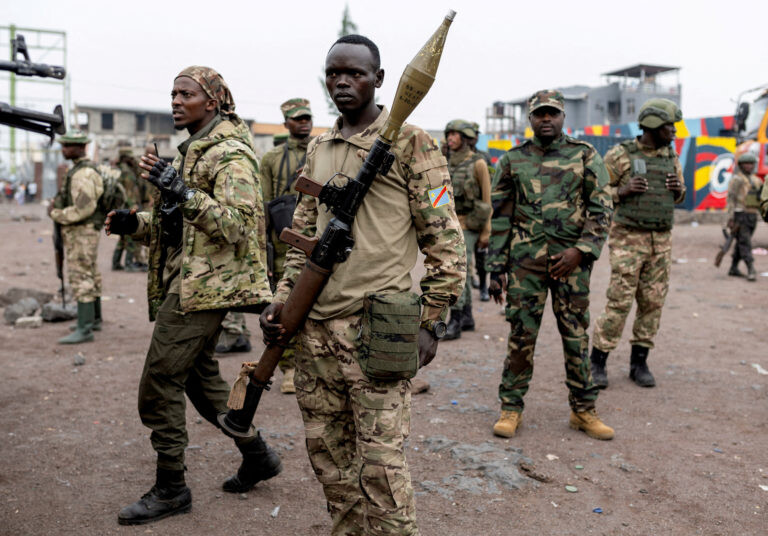
BUKAVU, Democratic Republic of Congo – The Rwanda-backed M23 rebel group has solidified its hold on Bukavu, the second-largest city in eastern Democratic Republic of Congo, just days after seizing control. The capture of Bukavu, following the fall of Goma in late January, marks a significant escalation in the ongoing conflict and has plunged the region into further uncertainty. Residents, while appearing resigned to their fate under rebel rule, remain apprehensive about the future.
The M23, one of over 100 armed groups vying for control of the region's vast mineral wealth, is allegedly supported by approximately 4,000 Rwandan troops, according to UN experts. This latest offensive has reignited a decades-long conflict that has displaced over 6 million people, creating one of the world's largest humanitarian crises.
The rebels' advance into Bukavu was met with a mass exodus of residents attempting to flee the city, while others resorted to looting. A sense of unease settled over the city as residents and business owners braced for the arrival of the M23 fighters. On Monday, a semblance of normalcy began to return, with residents cautiously venturing out as rebels patrolled key intersections. However, many businesses remained closed, and the border crossing with Rwanda was shut down, highlighting the disruption and fear that persists.
"People are still scared to go out because of the insecurity, so it's not business as usual yet," said David Balezi, a shopkeeper in Bukavu. Despite the uncertainty, some residents expressed a sense of resignation. "Now we thank God that the situation is OK, even if we don't know what's coming. Whatever happens, we will live with it," commented David Munyaga, a Bukavu resident.
In an effort to stabilize the situation, the rebel-appointed governor of North Kivu province, Erasto Bahati Musanga, announced the reopening of the ports in Goma and Bukavu on Tuesday. Navigation on Lake Kivu, a crucial transportation artery, had been suspended since late January due to the rebel offensive.
Meanwhile, in Goma, hundreds of protesters took to the streets demanding the withdrawal of the UN peacekeeping force (MONUSCO) and troops from the Southern African Development Community (SADC). The protesters, holding signs and chanting slogans, gathered outside the MONUSCO headquarters, calling for the resignation of Congolese President Felix Tshisekedi. Protesters expressed frustration with the ongoing conflict and the perceived ineffectiveness of international intervention. "The war does not end in Congo, why? They have nothing to do here, they should leave," said Bauma Sukali, a protester in Goma. Another protester, Fiston Nsabimana, criticized President Tshisekedi's leadership, stating, "Tshisekedi is not able to ensure peace. Let him leave power."
The capture of Bukavu and the growing protests underscore the complex and volatile situation in eastern Congo. The M23's gains have raised concerns about further instability and the potential for increased human rights abuses. The calls for the withdrawal of international forces reflect a growing sentiment of resentment towards their presence, with some locals accusing them of failing to address the root causes of the conflict. The future of the region remains precarious, with the ongoing fighting and political tensions threatening to exacerbate the humanitarian crisis and further destabilize the region. The international community faces mounting pressure to find a sustainable solution to the conflict and address the underlying issues driving the violence.
[Copyright (c) Global Economic Times. All Rights Reserved.]






























